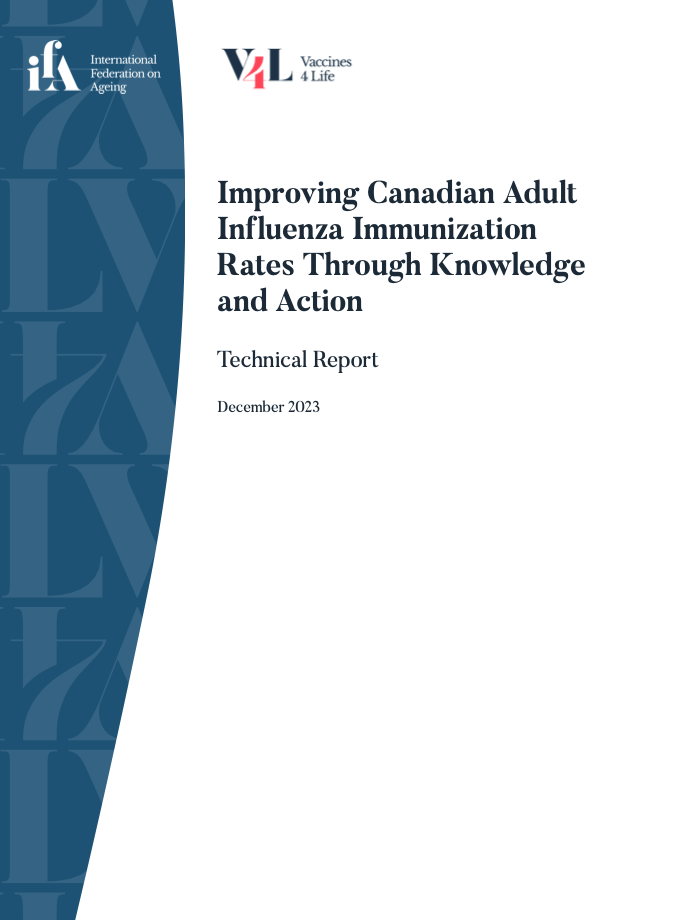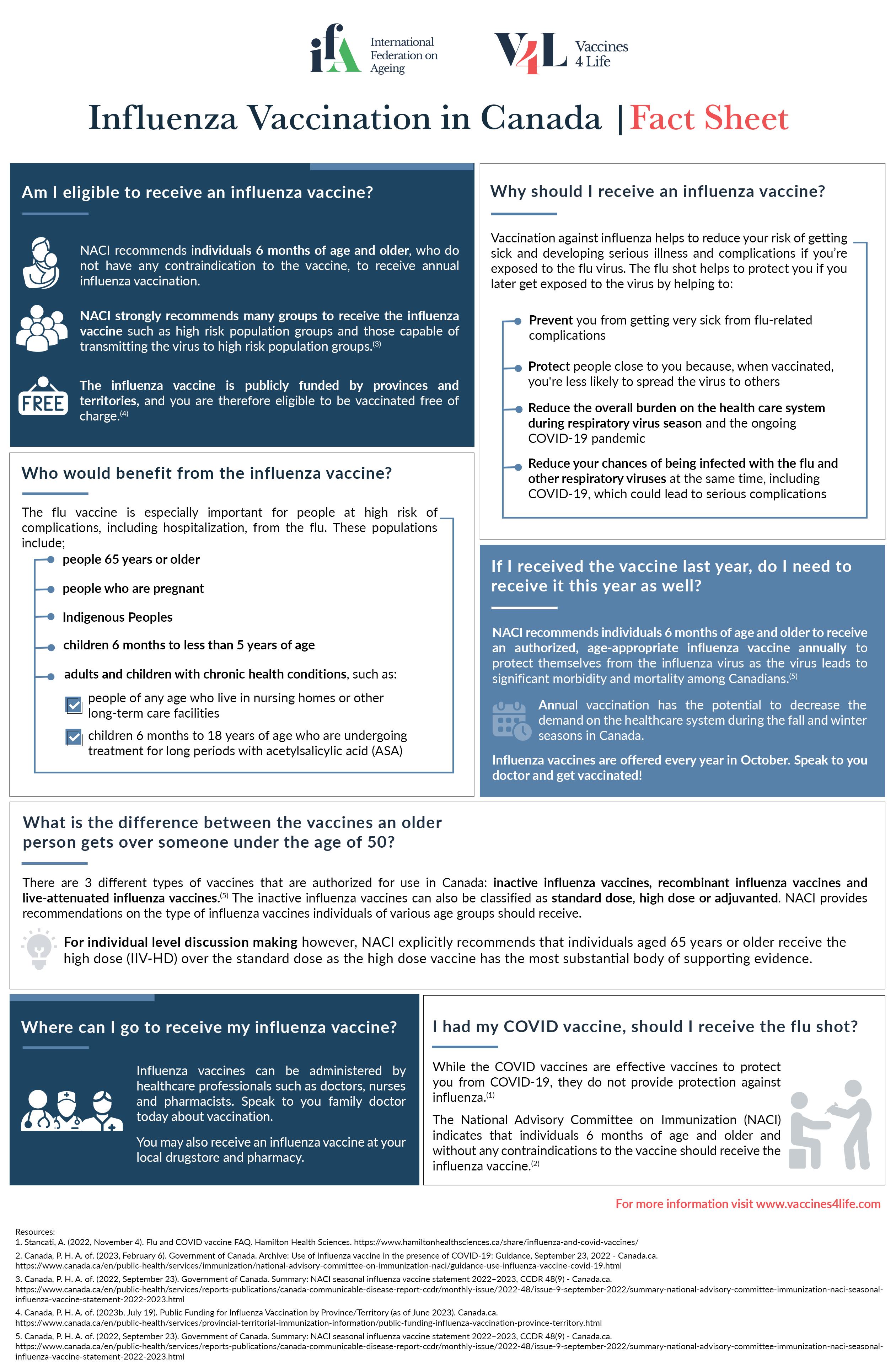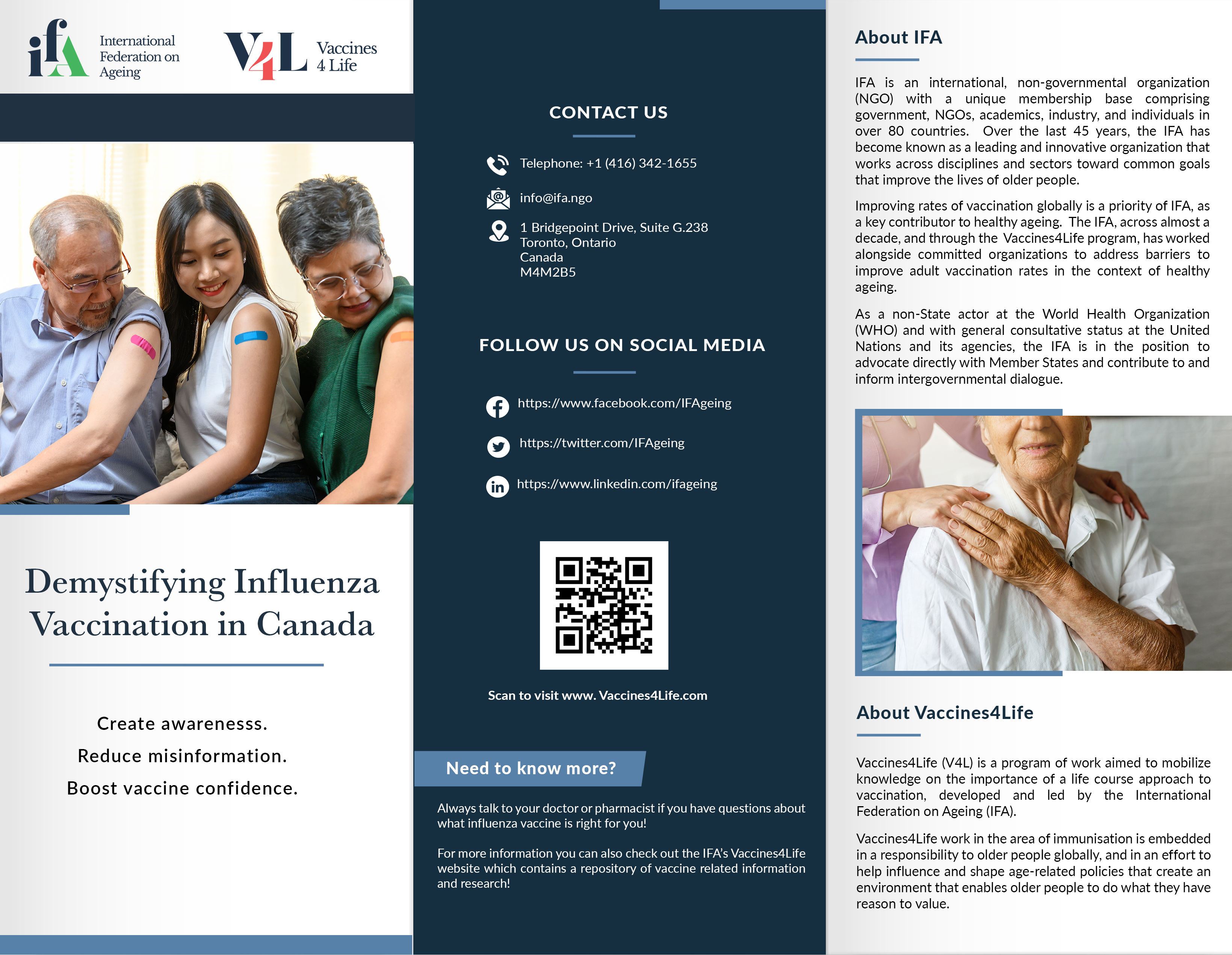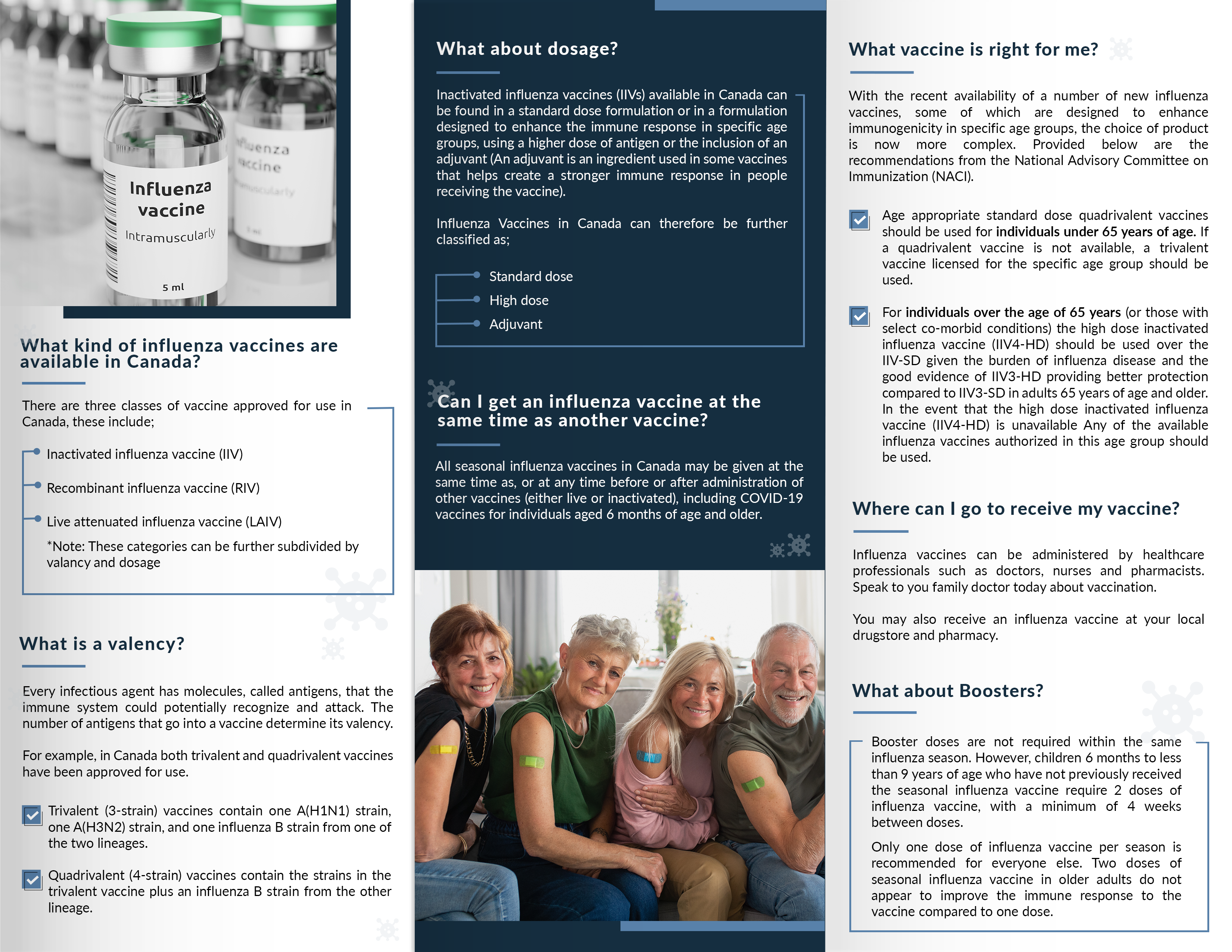Improving Canadian Adult Influenza Immunization Rates Through Knowledge and Action
Influenza is a viral respiratory illness that represents one of the top ten causes of death in Canada, accounting for over 12,000 hospitalizations and 3,500 deaths each year across the nation. While the typical recovery period lasts on average 3-7 days, severe complications and illnesses can develop resulting in hospitalization and/or death. People aged 65 years and older and individuals with chronic health conditions are among those who are at high-risk for developing influenza-related complications or hospitalizations and this risk continues to increase with age.
Recognizing the elevated risk influenza poses to older adults and the protection vaccination affords, the Canadian National Advisory Committee on Immunization (NACI) strongly recommends vaccination against influenza for any adults aged 65 years and older. Despite NACI recommendations, it is unclear however if Canadians are aware of specific recommendations or the fact that there are differences and/or options with respect to the influenza vaccines available to them. The differences in vaccine recommendations for older adults underscores the urgent need to ensure Canadians are equipped with the necessary knowledge to make appropriate and informed decisions regarding their choice to be vaccinated and in protecting their health and wellbeing.
In an effort to better understand the perceptions, awareness and knowledge of influenza as a vaccine-preventable disease, the importance of vaccination and the options available among older adults, the IFA has embarked upon the Improving Canadian Adult Influenza Immunization Rates Through Knowledge and Action Project! This project included key informant interviews and an on-line survey which gathered Canadians views on influenza vaccination practices and the vaccines available to older people. Using this information, the IFA has developed a number of awareness raising and educational resources to ensure that all Canadians have access to the important information they need in an appropriate and easy to use format.
Educational Resources
The Improving Canadian Adult Influenza Immunization Rates Through Knowledge and Action Project included key informant interviews and an on-line survey which gathered Canadians views on influenza vaccination practices and the vaccines available to older people. Using this information, the IFA has developed a number of awareness raising and educational resources to ensure that all Canadians have access to the important information they need in an appropriate and easy to use format.
Included below are shareable resources and vaccination messages you can use to share key flu information on your social media networks.
For printable materials please contact Ms Berenice Anaya, Strategic Communications Director at banaya@ifa.ngo
| Caption | Image (click on the image to download) |
| While you may still get the flu if you are vaccinated, being vaccinated greatly protects you for negative health outcomes including hospitalization compared to those that are unvaccinated | 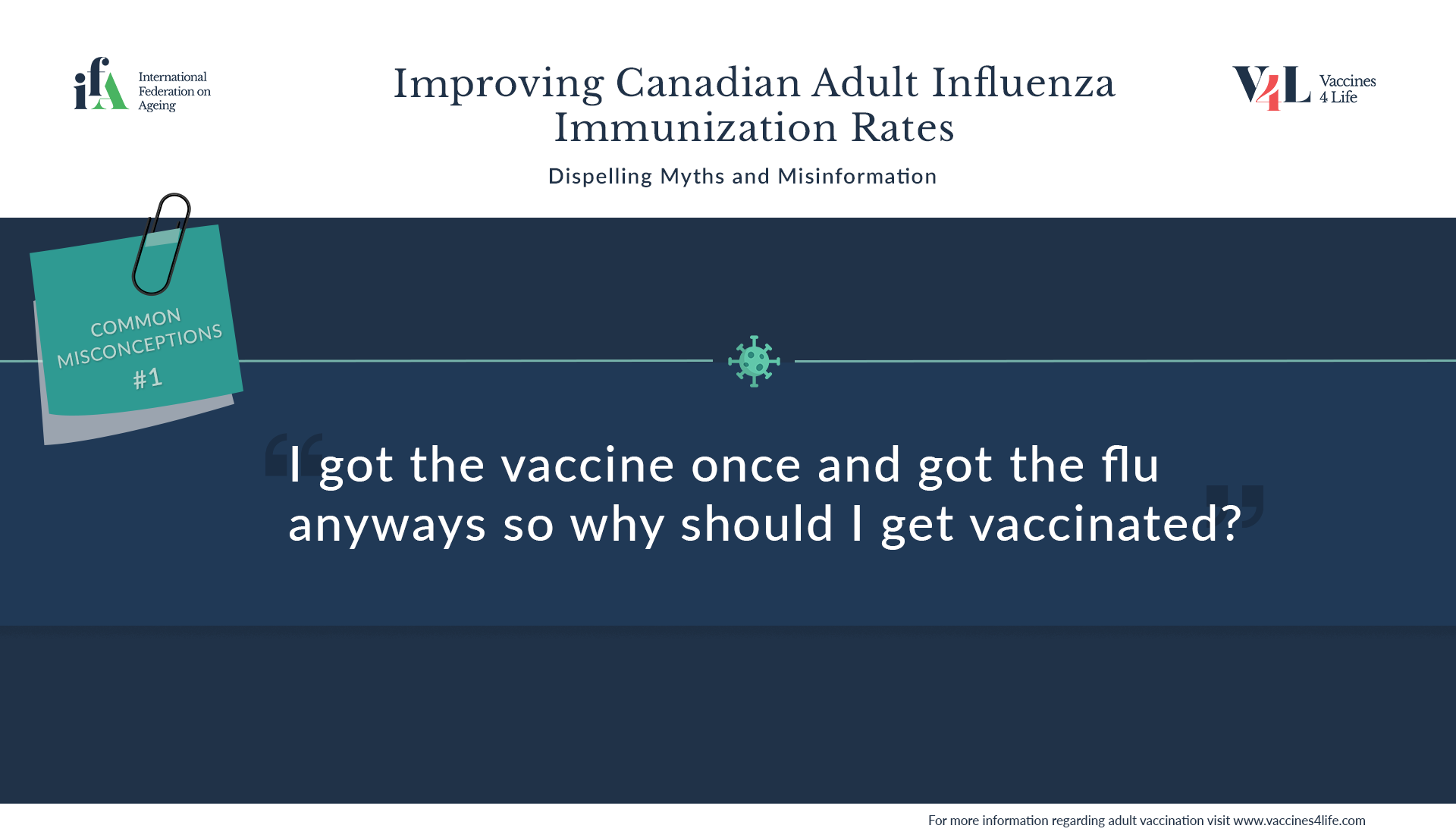 |
| The flu vaccine contains only inactivated virus and cannot give you influenza. If you are feeling achy or feverish after your flu shot this is just your immune systems normal reaction to the vaccine! | 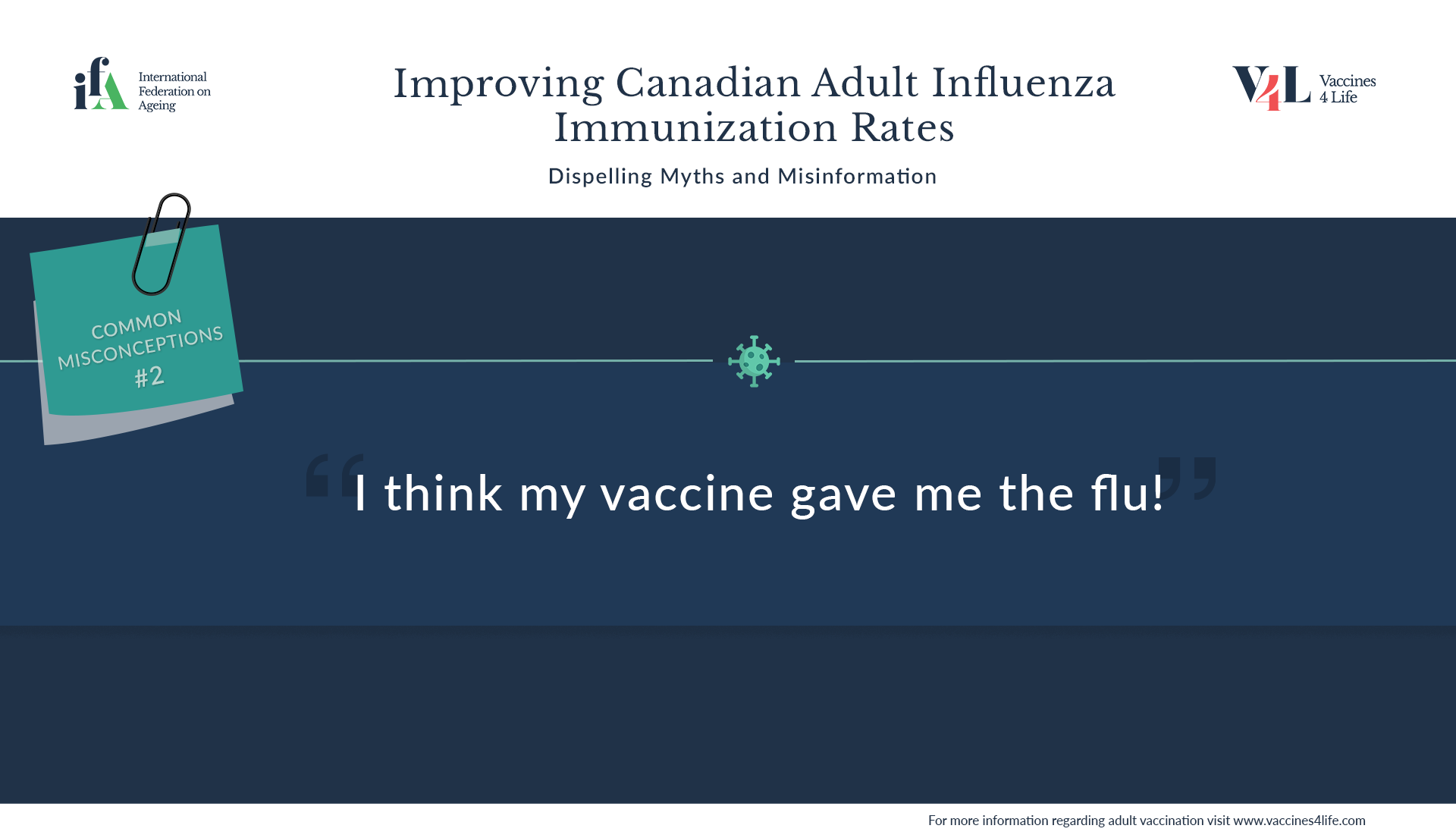 |
| Even healthy people can contract and fall seriously ill from influenza. Getting vaccinated also protects those around you that may be more susceptible or at risk to severe health outcomes. | 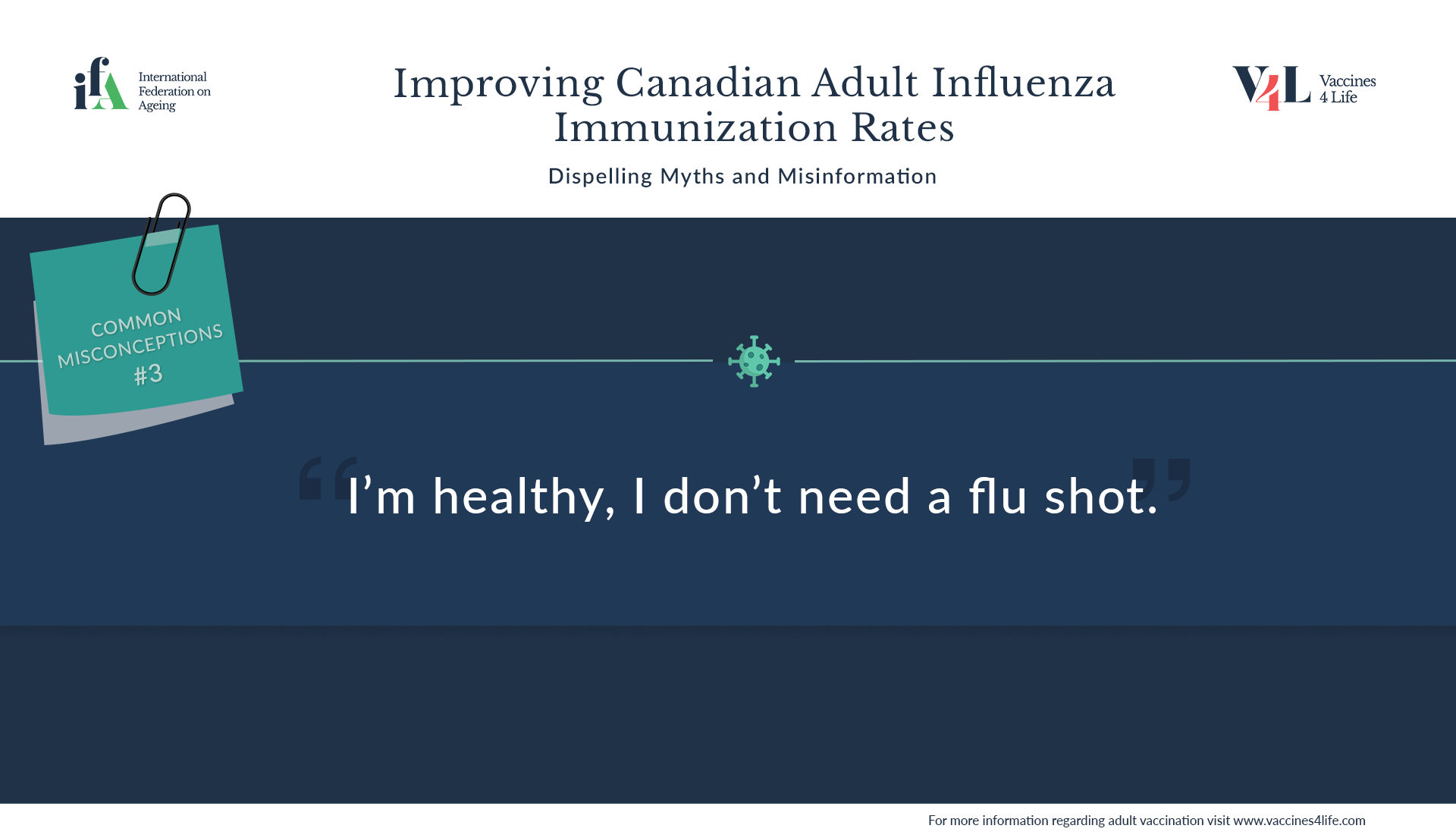 |
| The influenza virus is constantly changing so it is important to get vaccinated each year to ensure you are protected against the most common strains. | 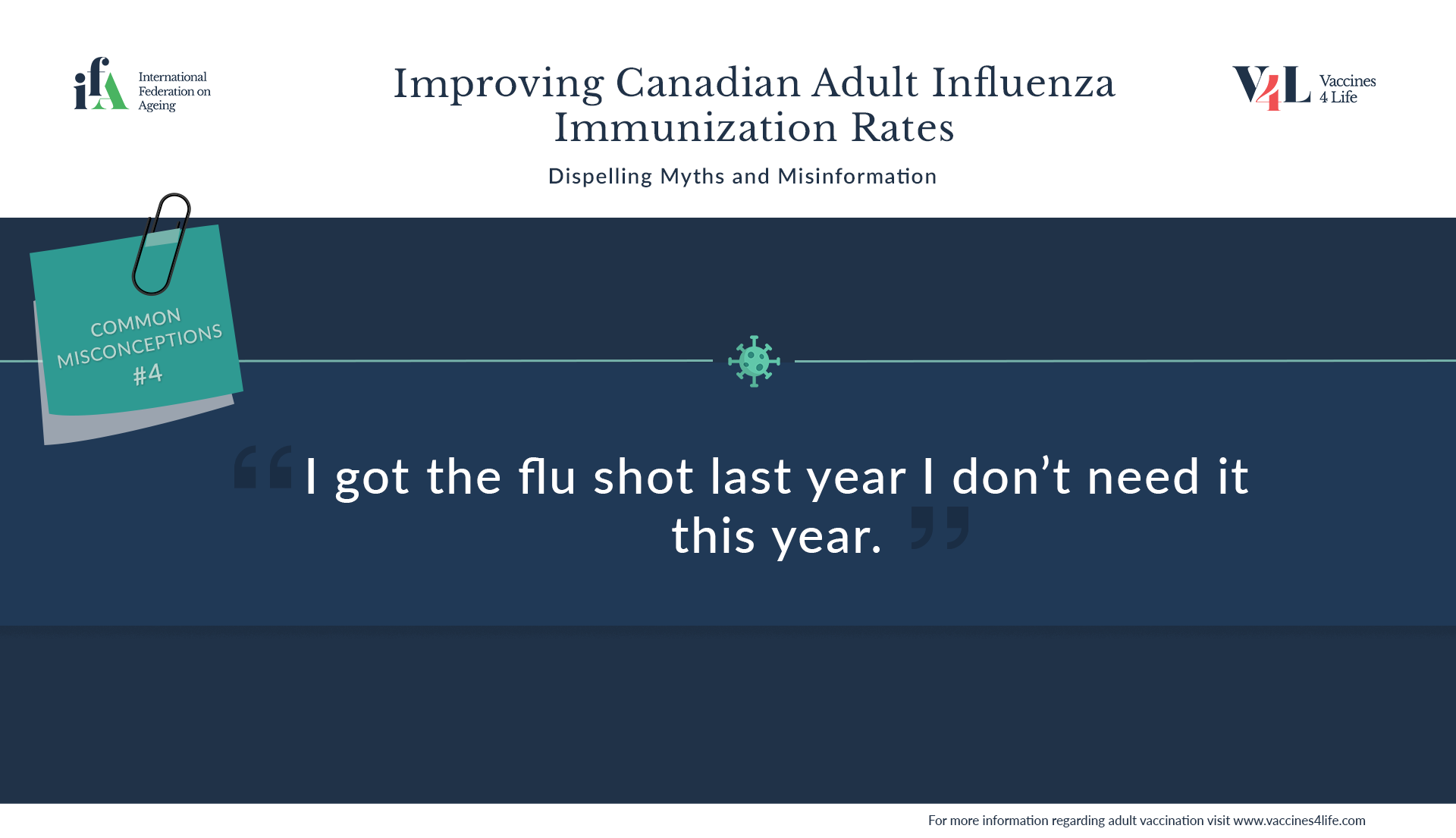 |
| As many as 650,000 people die annually from the flu and even those who are perfectly healthy can get the flu. The best way to protect yourself is to get vaccinated! | 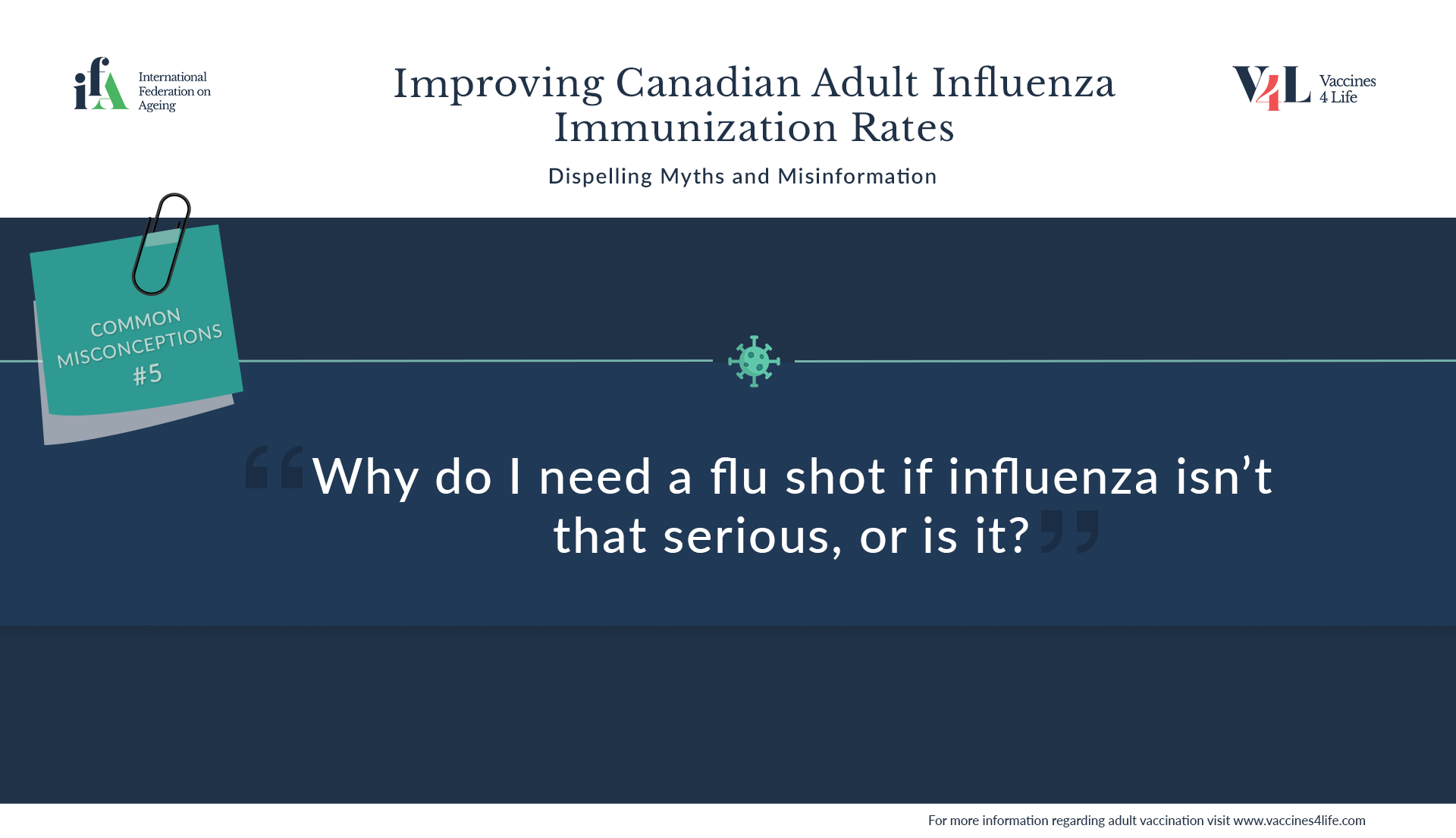 |
| While it is recommended that people receive flu vaccines by the end of October, getting vaccinated late is better than not at all. Flu activity can stick around for a long time so don’t worry if you missed out early in the season, get vaccinated today. | 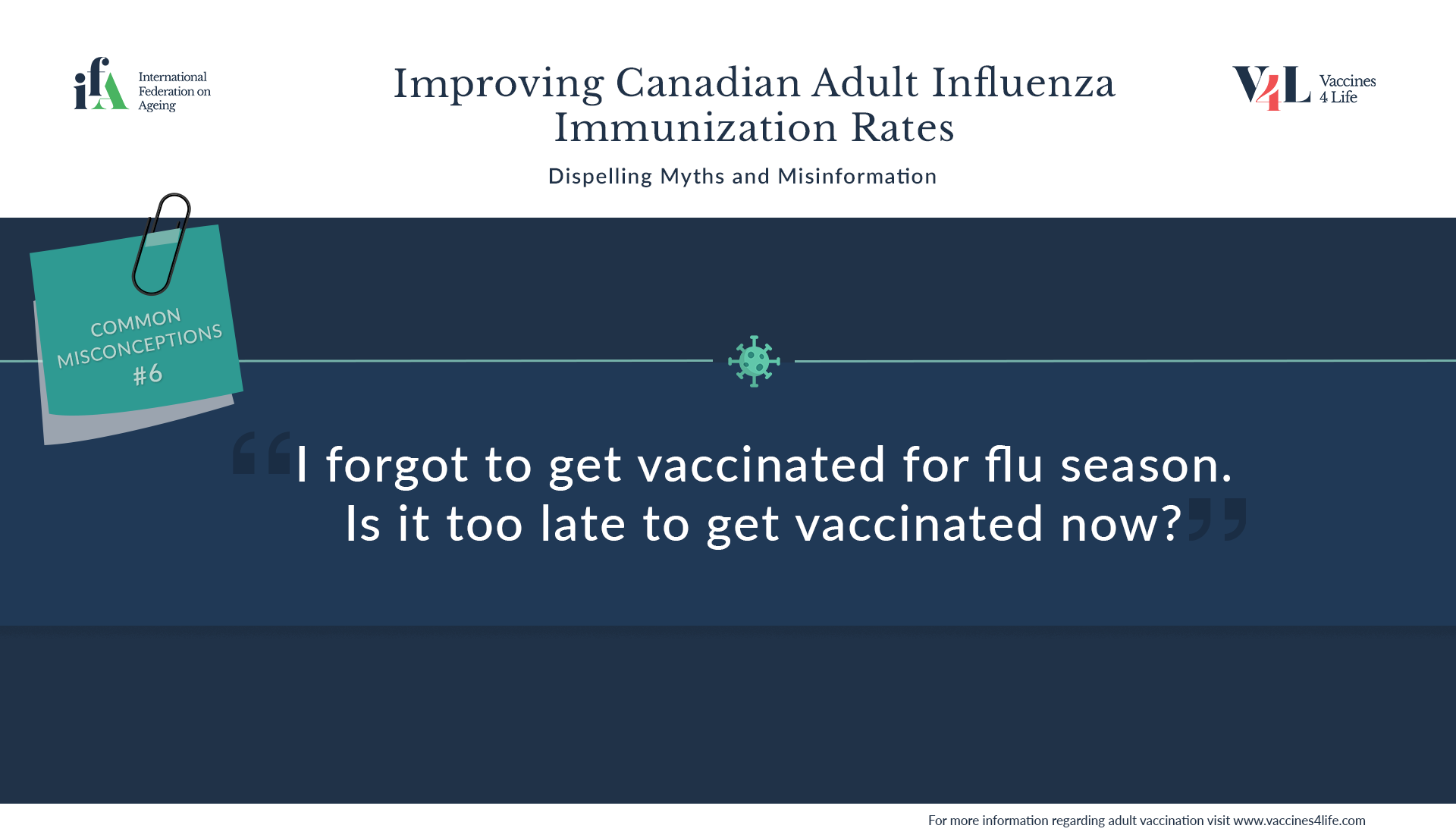 |
| While many people get their flu vaccine from their family doctor flu vaccines are widely available and can be found at a variety of locations including drugstores, pharmacies, urgent care centers and even some schools! For information on where you can get vaccinated click here! | 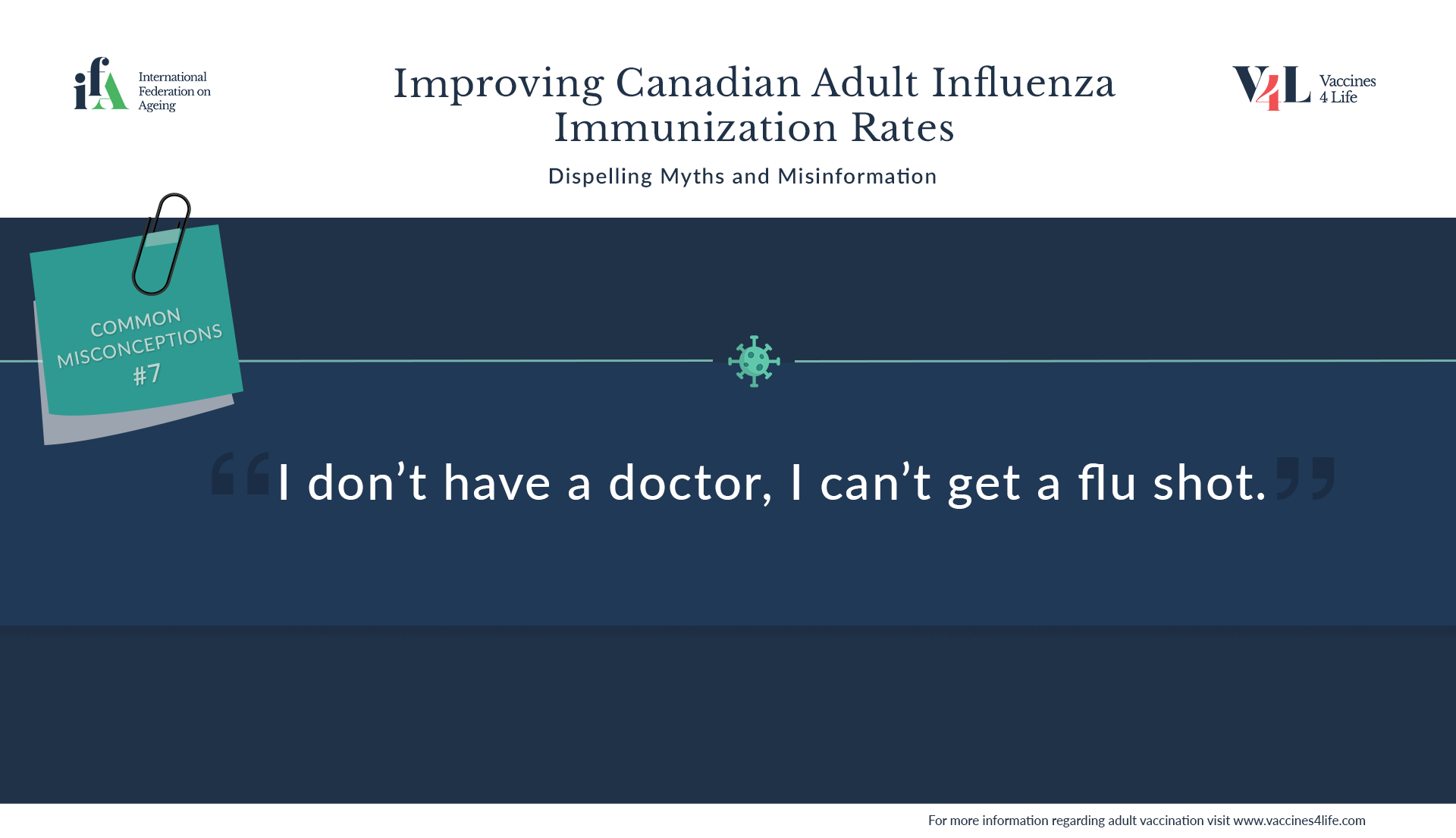 |
| The risk of a flu vaccine causing serious harm or death is extremely small. Flu vaccines are given safely to millions of people around the world each year and save countless lives. | 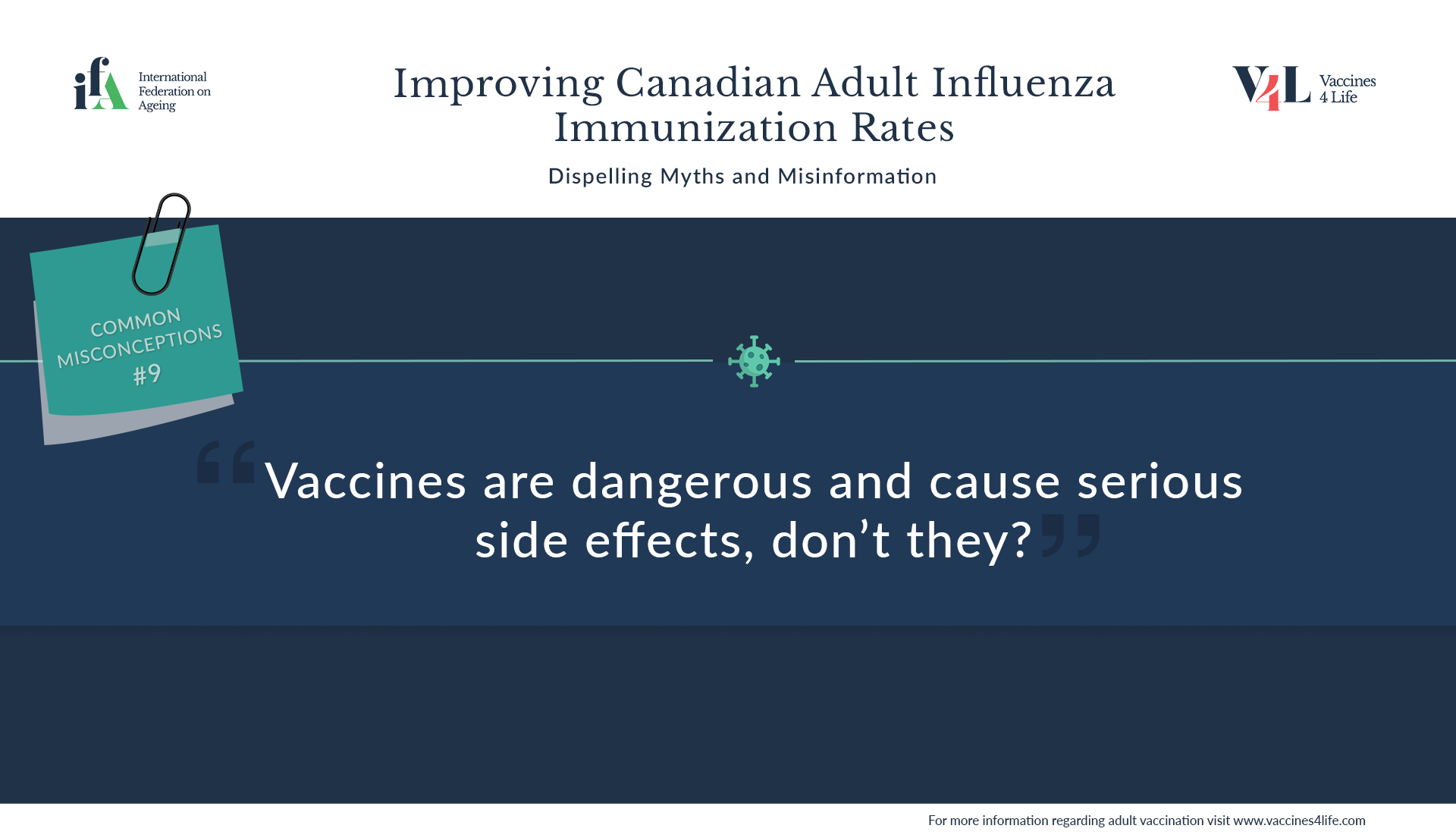 |
| Individuals with chronic and/or co-morbid condition are often at increased risk from serious health outcomes from vaccine preventable diseases like influenza. Be sure to talk to your doctor or pharmacist to know which vaccine is right for you. | 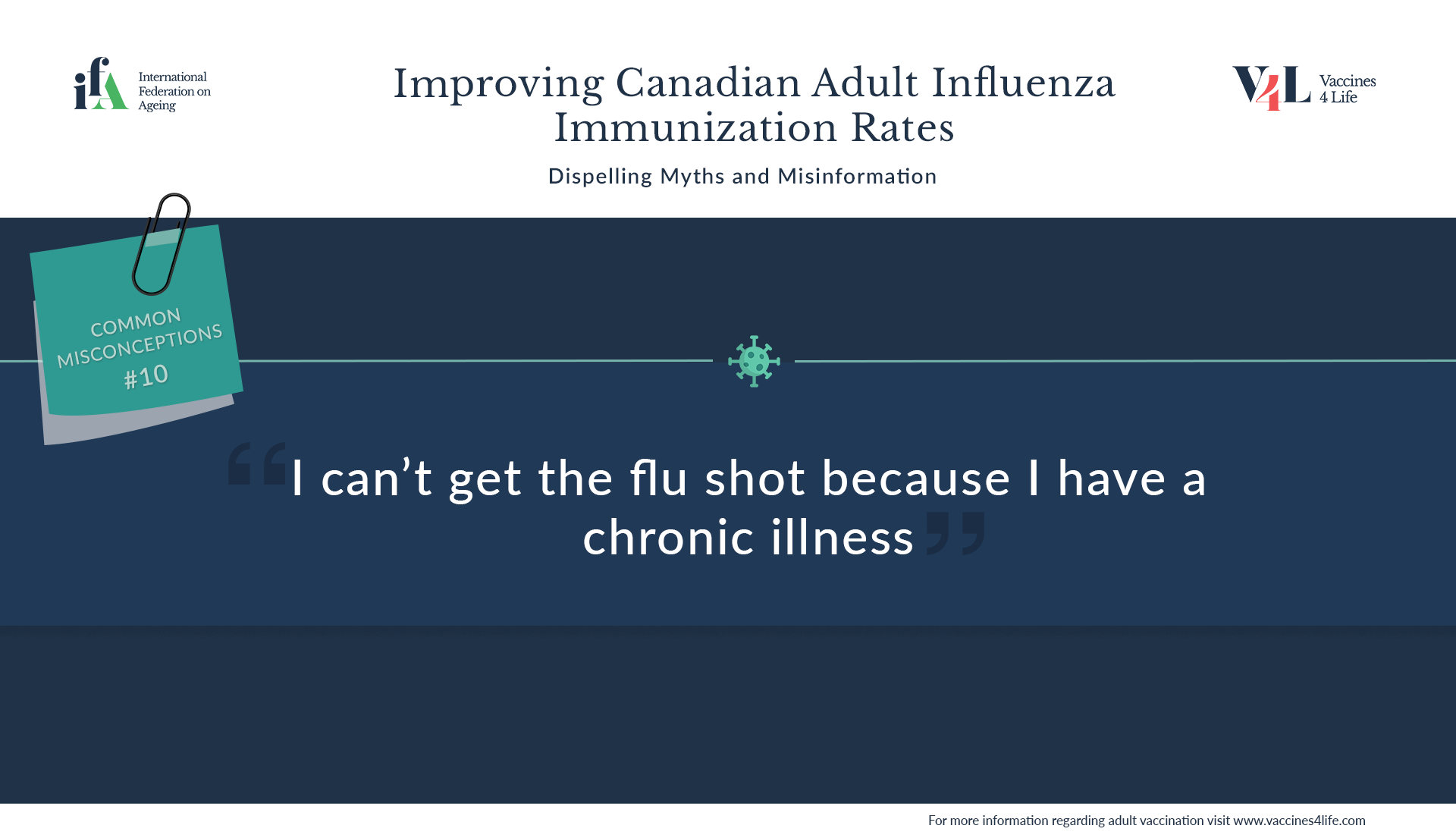 |
| The influenza virus strains change most years, so you need to get immunized each year to be protected against new strains. People who get the vaccine each year are better protected than those who remain unvaccinated. | 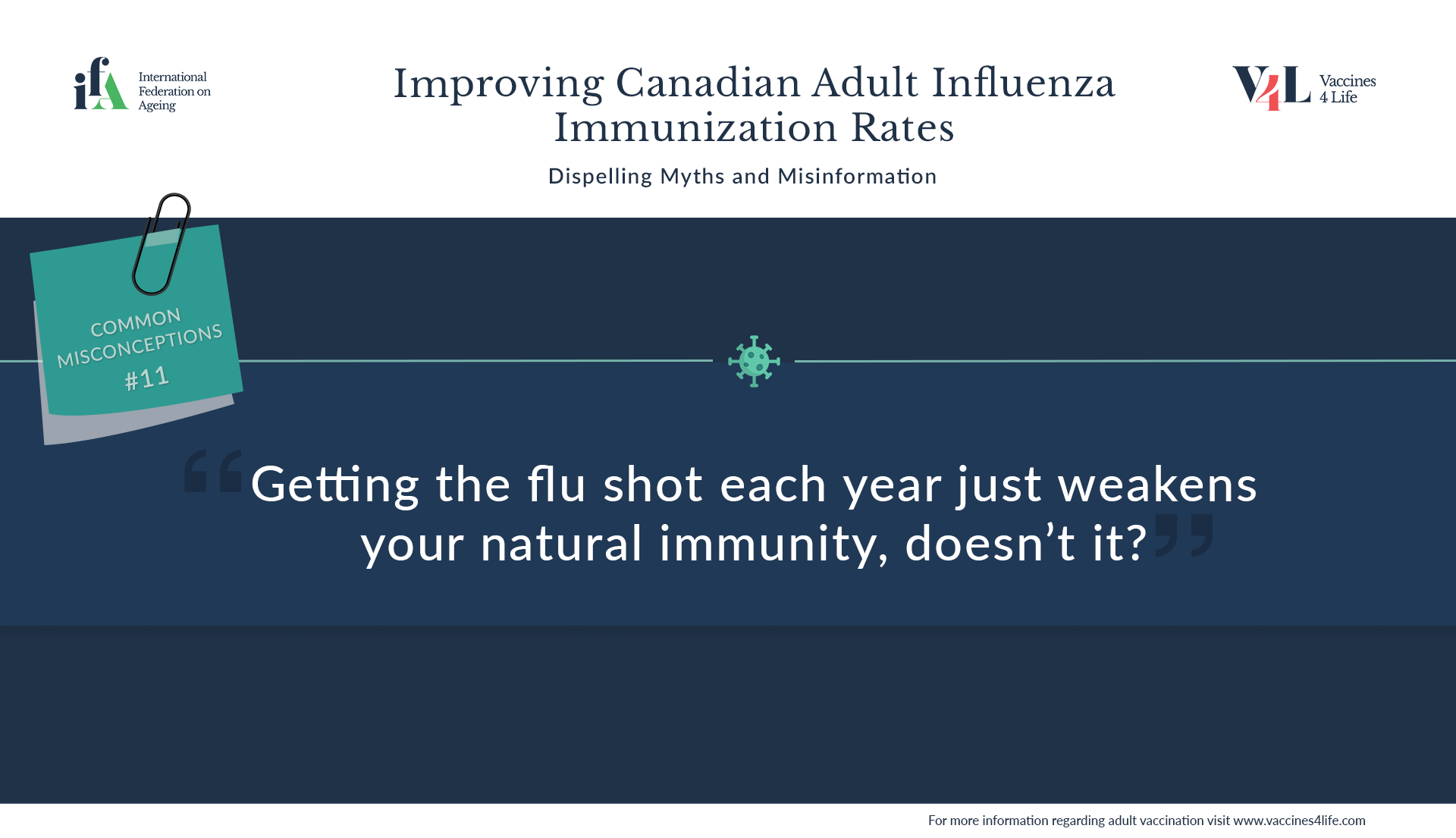 |
| People 6 months of age or older can get their COVID-19 vaccine at the same time as, or at any time before or after, other recommended vaccines, including the flu shot. | 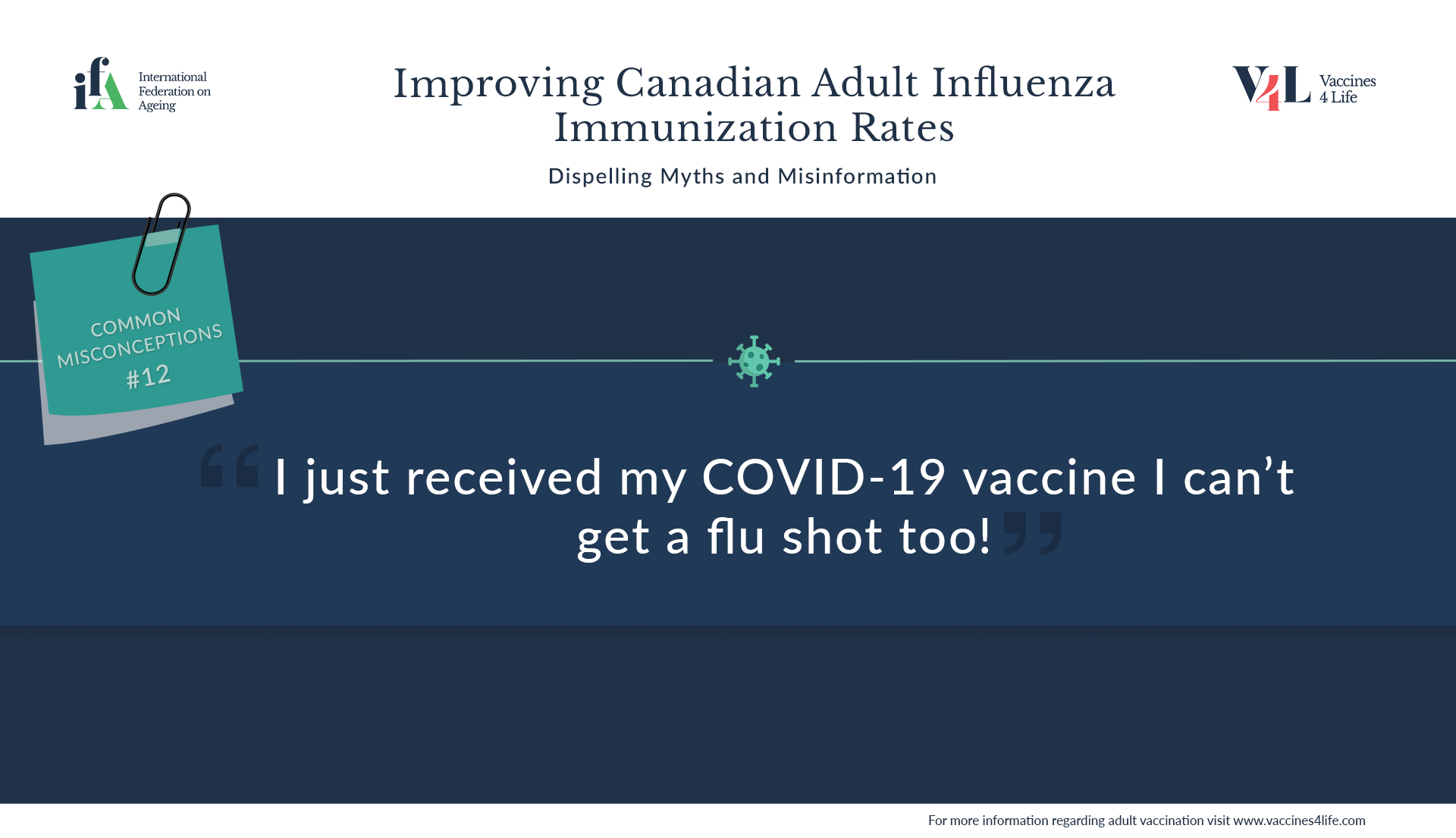 |


